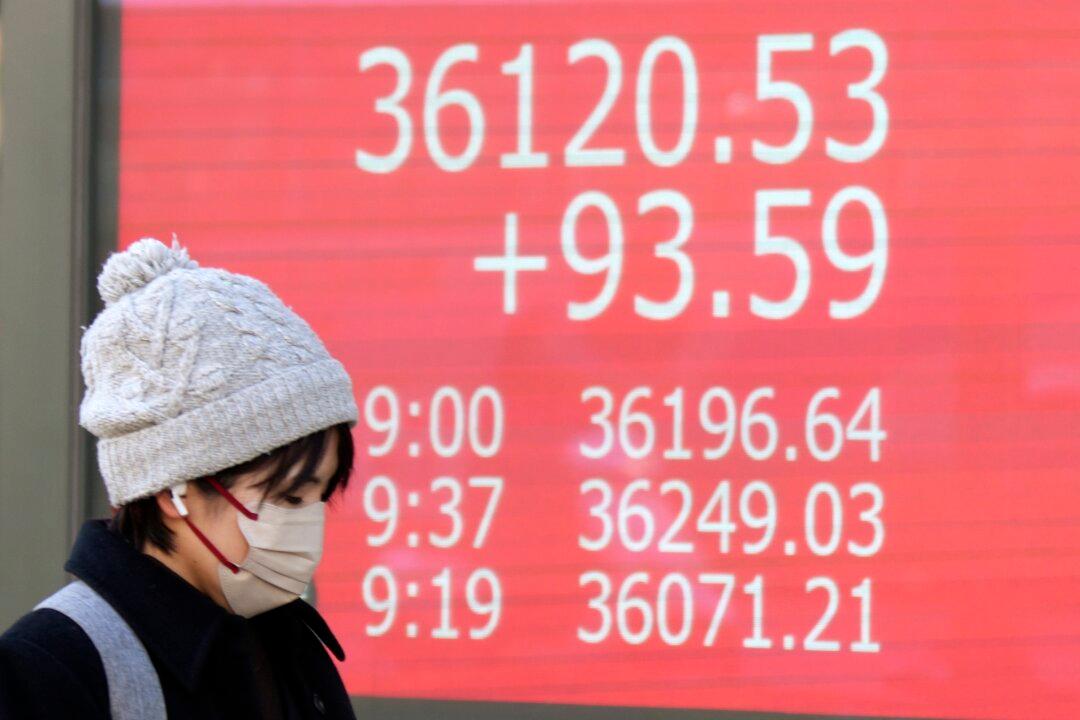BANGKOK—European shares rose Tuesday after a mixed day of trading in Asia, where Hong Kong and Shanghai declined on renewed selling of property and technology shares.
U.S. futures slipped and oil prices edged higher.

BANGKOK—European shares rose Tuesday after a mixed day of trading in Asia, where Hong Kong and Shanghai declined on renewed selling of property and technology shares.
U.S. futures slipped and oil prices edged higher.